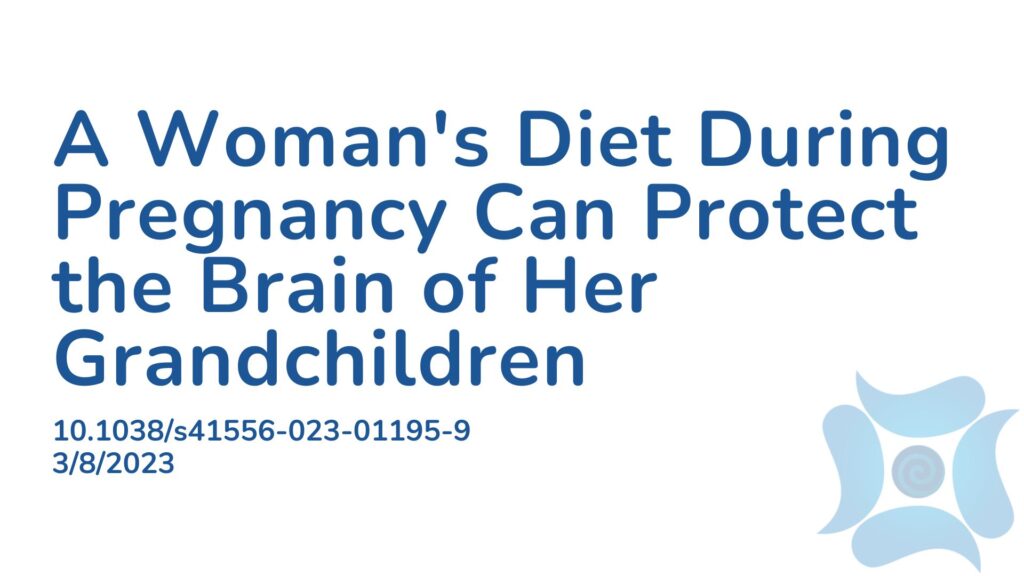Summary:
It is known that the maternal diet can have profound impacts on the health of the offspring, however this study has found that certain foods consumed during pregnancy can help protect against the deterioration of brain function for future generations, including a woman’s grandchildren. This study has looked at the genes of roundworms, as they share similar genes to humans, and has shown that mothers who consume a molecule called ursolic acid which is present in common foods such as apples and particular herbs can help reduce neurodegeneration and the dysfunction of nerve cells that are required for the brain to operate optimally. This is because nerve cells in the brain communicate with each other via thousands of cables called axons. For these axons to remain healthy and function optimally, it requires molecules such as ursolic acid to be transported along their structures to prevent neurodegeneration. The researchers were able to identify the specific mechanism of the ursolic acid, finding that it activates a gene that makes a specific type of fat, named sphingolipid, which is responsible for protecting the overall health of axons. The sphingolipid then travels from the mother’s digestive system to the eggs in the uterus which will belong to her offspring, to protect the axons for future generations. The study discusses that whilst these results are very promising, it is important they are confirmed in humans before any conclusions are made.
Abstract:
In animals, maternal diet and environment can influence the health of offspring. Whether and how maternal dietary choice impacts the nervous system across multiple generations is not well understood. Here we show that feeding Caenorhabditis elegans with ursolic acid, a natural plant product, improves axon transport and reduces adult-onset axon fragility intergenerationally. Ursolic acid provides neuroprotection by enhancing maternal provisioning of sphingosine-1-phosphate, a bioactive sphingolipid. Intestine-to-oocyte sphingosine-1-phosphate transfer is required for intergenerational neuroprotection and is dependent on the RME-2 lipoprotein yolk receptor. Sphingosine-1-phosphate acts intergenerationally by upregulating the transcription of the acid ceramidase-1 (asah-1) gene in the intestine. Spatial regulation of sphingolipid metabolism is critical, as inappropriate asah-1 expression in neurons causes developmental axon outgrowth defects. Our results show that sphingolipid homeostasis impacts the development and intergenerational health of the nervous system. The ability of specific lipid metabolites to act as messengers between generations may have broad implications for dietary choice during reproduction.
Article Publication Date: 3/8/2023
DOI: 10.1038/s41556-023-01195-9



